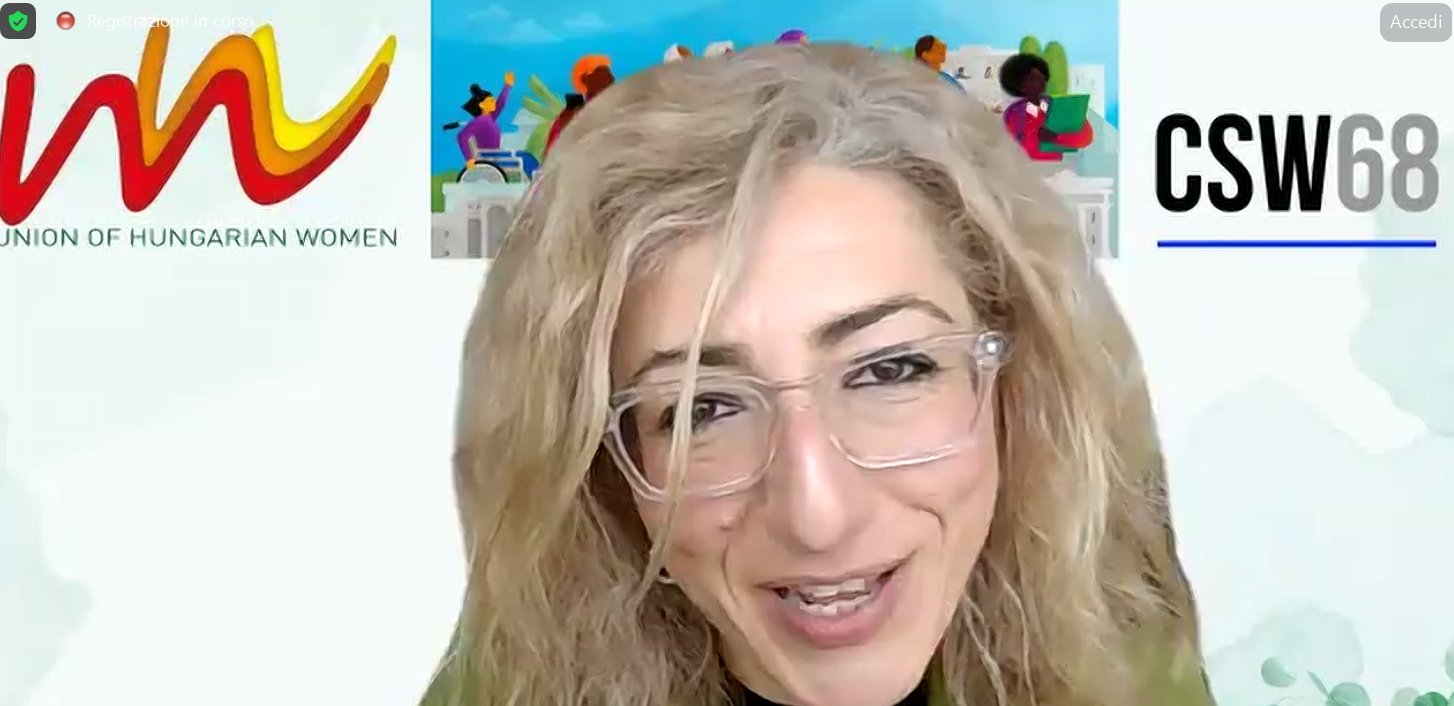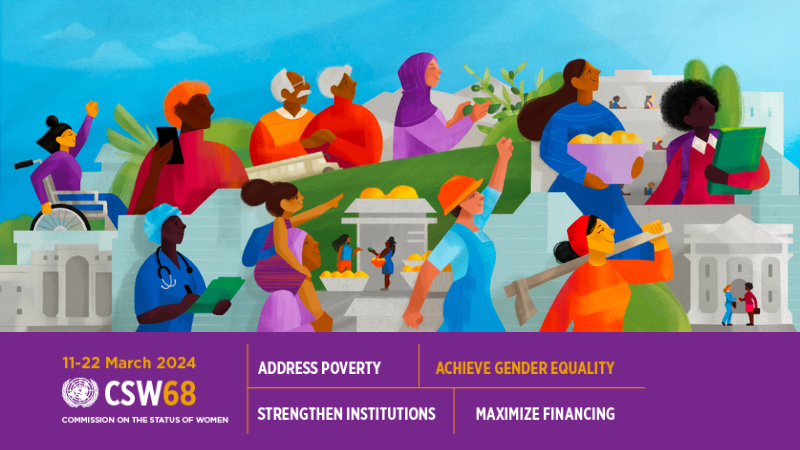At the 68th Session of the Commission on the Status of Women (CSW68), held in New York from March 11 to 22, the World Farmers’ Organisation (WFO) ensured that the voices of women farmers from all over the world were heard clearly and prominently.
A delegation of WFO Women Representatives got involved in several parallel events, as speakers or organisers, advocating for women farmers’ rights and empowerment, from a global perspective. From addressing unequal access to resources to highlighting the indispensable role of women in rural economies, these engagements shed light on the multifaceted issues affecting women in agriculture. Let’s delve into the major sessions we were engaged in:
Empowering Women Farmers by Addressing Global Challenges and Ensuring Social Protection

On Thursday, March 15, Ms Francesca Gironi, a WFO Women’s Committee member, participated in a CSW68 Parallel Event organised by the Union of Hungarian Women (UHW), titled: “How to create profitable services for gender equality including social protection (e.g. social safety net), access to public services and sustainable infrastructure?” The event aimed to discuss the global challenges women farmers face and the crucial role of social protection systems in addressing them.
Ms Gironi put light on the vital role of women farmers in the agricultural sector and rural communities across the globe and stressed the need to recognise this role.
In her role as a member of the WFO Women Committee, she learned about various challenges shared by women farmers globally such as unequal access to information, financial services, inputs, and technologies, along with disparities in participation, leadership, and decision-making. “Moreover” – she underlined – “women are disproportionately vulnerable to global challenges like conflicts, climate change, and food insecurity, primarily due to their dependence on scarce and threatened natural resources.”
She called on governments to support women farmers by adopting policies which contribute to achieving women’s empowerment and safeguarding their rights and opportunities by ensuring equal access to services such as extension services, healthcare, and microcredit, as well as essential resources like land and technology. Furthermore, governments should invest in the implementation of social protection policies and programs, including social assistance and social insurance, that acknowledge women’s roles and alleviate their burdens not only by enhancing resilience but also by contributing to reducing inequalities, poverty, and food insecurity, thereby fostering the sustainable development of rural areas.
Women in Agriculture: the Game Changer that We Must Empower

On Wednesday, March 20, WFO Board Member Ms Kati Partanen representative of the European Constituency, joined the CSW68 Virtual Parallel Event titled “Building Leadership of Young Women in Cooperatives in Combating Inequalities, Enhancing Productivity towards the 2030 Global Agenda,” organised by the WFO Member Indian Cooperative Network for Women (ICNW).
Ms Partanen underscored the indispensable role of women in agriculture, highlighting their pivotal contribution to fostering sustainable development in rural communities worldwide. Despite their significance, women farmers encounter numerous obstacles, including unequal access to essential resources. To overcome these obstacles, cooperatives play a crucial role in providing women farmers access to vital resources such as land, technology, education, funds, insurance, and social services.
She remarked that the cooperative model expands women’s opportunities, contributing significantly to their empowerment, financial independence, and the pursuit of gender equality, aligning with the targets of Sustainable Development Goal 5: “The integration of gender perspectives in cooperatives is essential, requiring active and equitable participation from both men and women. This inclusion is not just a moral imperative but a necessary condition for sustainable cooperative development.” – she stated.
Furthermore, Ms Partanen stressed the importance of investing in the education and empowerment of young women in Agriculture by equipping them with necessary tools and capacity-building programs, so young farmers can effectively tackle the challenges facing the agricultural sector.
She provided the audience with an example of the successful WFO Gymnasium Capacity-Building Program, which offers comprehensive education covering topics ranging from self-leadership to advocacy. The program aims to groom young, promising women, as well as male farmers, into future leaders within the agricultural sector. It provides lessons from international leaders across various policy areas and facilitates active engagement in global events related to agriculture.
“By investing in the education and empowerment of young women in agriculture, we equip them with the necessary tools to overcome the upcoming challenges in the agricultural sector.” – she closed.
Enhancing WFO engagement in the Commission on the Status of Women has been instrumental in spotlighting the remarkable contributions and triumphs of women farmers in tackling pressing global challenges. Concurrently, we have diligently prioritized amplifying the voices of farmers, ensuring their needs are front and centre. In our concerted efforts, we have actively liaised with the focal points of the Women Major Group, strategically integrating the experiences and achievements of our sector into the broader discourse on issues confronting women worldwide.
